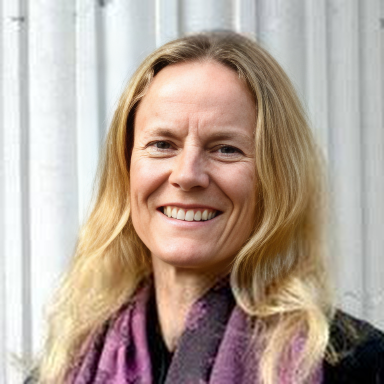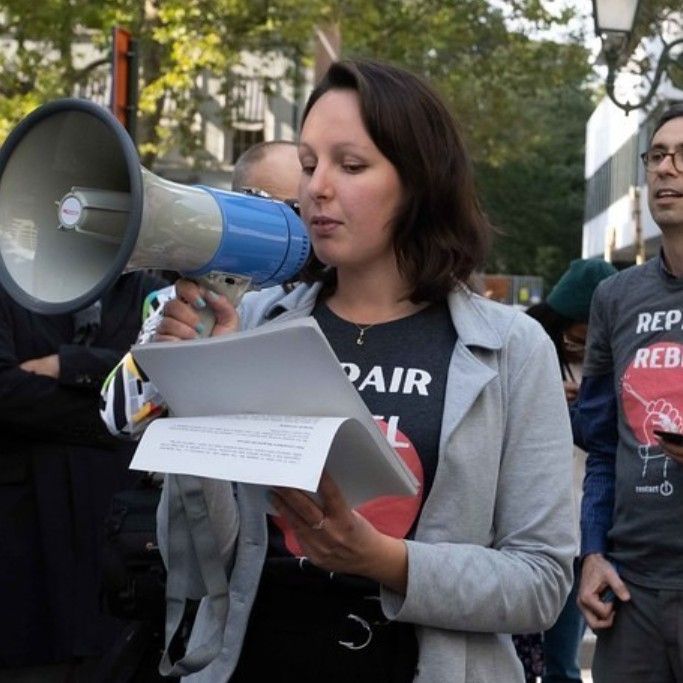
What happened?
Circularity is more than a worthwhile business model
Traditional linear models of production based on the idea of take-make-consume-throw away patterns are putting the Earth’s ecosystems under strain, as they buckle under insatiable demand for more natural resources. Moving to a circular economy in Europe is increasingly recognised as necessary to minimise environmental damage but also as a way to foster a resilient economy through innovation and job creation.
Taking place as part of the SSH CENTRE (Social Sciences and Humanities for Climate, Energy and Transport Research Excellence), a Horizon Europe project that aims to accelerate the EU’s transition to carbon neutrality by strengthening social innovation, SSH-STEM collaboration and transdisciplinary policy advice, the event explored the current challenges that hinder a transition to a circular economy.
It’s more than just a business model
It’s about a very clear imperative of resource constraints and very immediate one,” argued Kertsy Hobson, Reader at Cardiff University School of Planning and Geography.
To ensure the success and widespread adoption of a circular economy, it is imperative to make it accessible to all. This involves designing products according to circular criteria, providing consumers with the necessary information to make informed decisions and addressing barriers that hinder repair and product longevity. By prioritising these aspects, policymakers can create an environment in which circular practices are not only encouraged but also easily accessible to individuals, thereby fostering a more sustainable and resilient economy for all.
This debate looked into how policy can ease the barriers to repair, as well as provide information and incentives to all market actors to make circular economy-consistent decisions.
This event took place in Brussels and was also be available to a wider audience via livestream. Follow us on Twitter, LinkedIn, Instagram or Facebook, and join the #SSHCENTRE #FoEDebate!
This Policy Insight was part of the SSH CENTRE (Social Sciences and Humanities for Climate, Energy and Transport Research Excellence) project.
This project, supported by 13 leading organisations from across Europe, engages directly with stakeholders including researchers, policymakers, business representatives as well as civil society and citizens to strengthen social innovation, SSH-STEM collaboration and transdisciplinary policy advice, to accelerate the EU’s transition to carbon neutrality.

Related content:
- The sustainable construction revolution – are we there yet? By Gunita Kuļikovska-Ķiesnere
- Co-creating the shift to clean mobility
- SSH CENTRE (Social Sciences and Humanities for Climate, Energy and Transport Research Excellence)
Our events include photos, audio and video recording that we might use for promotional purposes. By registering, you give your permission to use your image. Should you have any questions, please contact us.
Photo credits: Shutterstock_Garfieldbigberm
Schedule
Questions to be addressed in the debate include:
- What role do community groups, co-operatives and local enterprises have in the circular economy?
- How can the language of ecolabels and ecodesign production incentivise citizens to consume differently?
- What is the role of trust in this process and how can accountability mechanisms for deceitful sustainability claims be strengthened?
Speakers
Kersty Hobson
Reader at Cardiff University School of Planning and Geography
Cristina Ganapini
Coordinator at Right to Repair Europe
Malgorzata Golebiewska
Team Leader for Environmental Footprint at the European Commission Directorate-General for the Environment (DG ENV)
Moderator
Luke O’Callaghan-White
Programme Manager for Climate, Energy & Sustainability at Friends of Europe
Speakers

Reader at Cardiff University School of Planning and Geography

Coordinator at Right to Repair Europe
Cristina Ganapini coordinates the Right to Repair Europe coalition, which brings together over 100 NGOs from 21 European countries. The coalition represents repair actors such as community repair groups, social economy actors, spare parts distributors, self-repairers, repair and refurbishing businesses, and any citizen who would like to advocate for their right to repair. A rapidly growing movement, its objective to make repair affordable, accessible and mainstream is aligned with the objectives of the European Green Deal and the Circular Economy Action plan.

Team Leader for Environmental Footprint at the European Commission Directorate-General for the Environment (DG ENV)
Partners
Co-organised with

Activities
A bold vision for a climate-neutral and competitive Europe
Next event In person & livestreamed

- Area of Expertise
- Climate, Energy & Natural Resources
European Oceans Pact: is maritime transport on board?
Past event In person & livestreamed

- Area of Expertise
- Climate, Energy & Natural Resources
Staying the course: driving sustainability forward in a shifting…
Past event In person & livestreamed

- Area of Expertise
- Climate, Energy & Natural Resources
Navigating risks and enhancing resilience: charting Europe’s energy and…
Past event In person & Livestreamed

- Area of Expertise
- Climate, Energy & Natural Resources
Energy prices coming down – is Europe on the right track?
- Category
- #CriticalThinking
- Author
- By Andris Piebalgs
Europe’s blackouts call for a NATO-level response
- Category
- #CriticalThinking
- Author
- By Maurizio Geri
We need a new cultural strategy for global climate action
- Category
- #CriticalThinking
- Author
- By Saman Rizwan
A betrayal of the future: the EU must act now
- Category
- #CriticalThinking
- Author
- By Benjamin Van Bunderen Robberechts

- Area of Expertise
- Climate, Energy & Natural Resources

- Area of Expertise
- Climate, Energy & Natural Resources

- Area of Expertise
- Climate, Energy & Natural Resources

- Area of Expertise
- Climate, Energy & Natural Resources
Continue
the debate on
- Debating Europe

